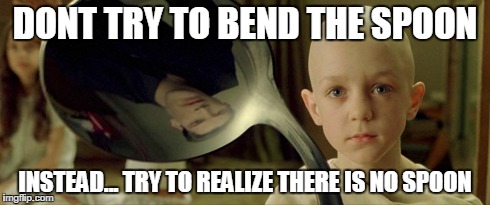Do you believe we humans are in the same predicament as the men in the cave in Plato's Allegory Of The Cave?
To quote Wikipedia:
…a group of people who have lived chained to the wall of a cave all their lives, facing a blank wall. The people watch shadows projected on the wall from objects passing in front of a fire behind them and give names to these shadows. The shadows are the prisoners’ reality, but are not accurate representations of the real world.
I do!
I believe that our reality is a computer simulation
And that it is a fairly crude simulation too but that we don't know any better!
To me, Plato's cave scenario resembles the truth of our condition to a very great degree
All we have ever known and can ever know are only shadows - that bear only a very minimal resemblance to anything that exists outside The Simulation
Were we to ever exit The Simulation our puny simulated minds would be totally blown

